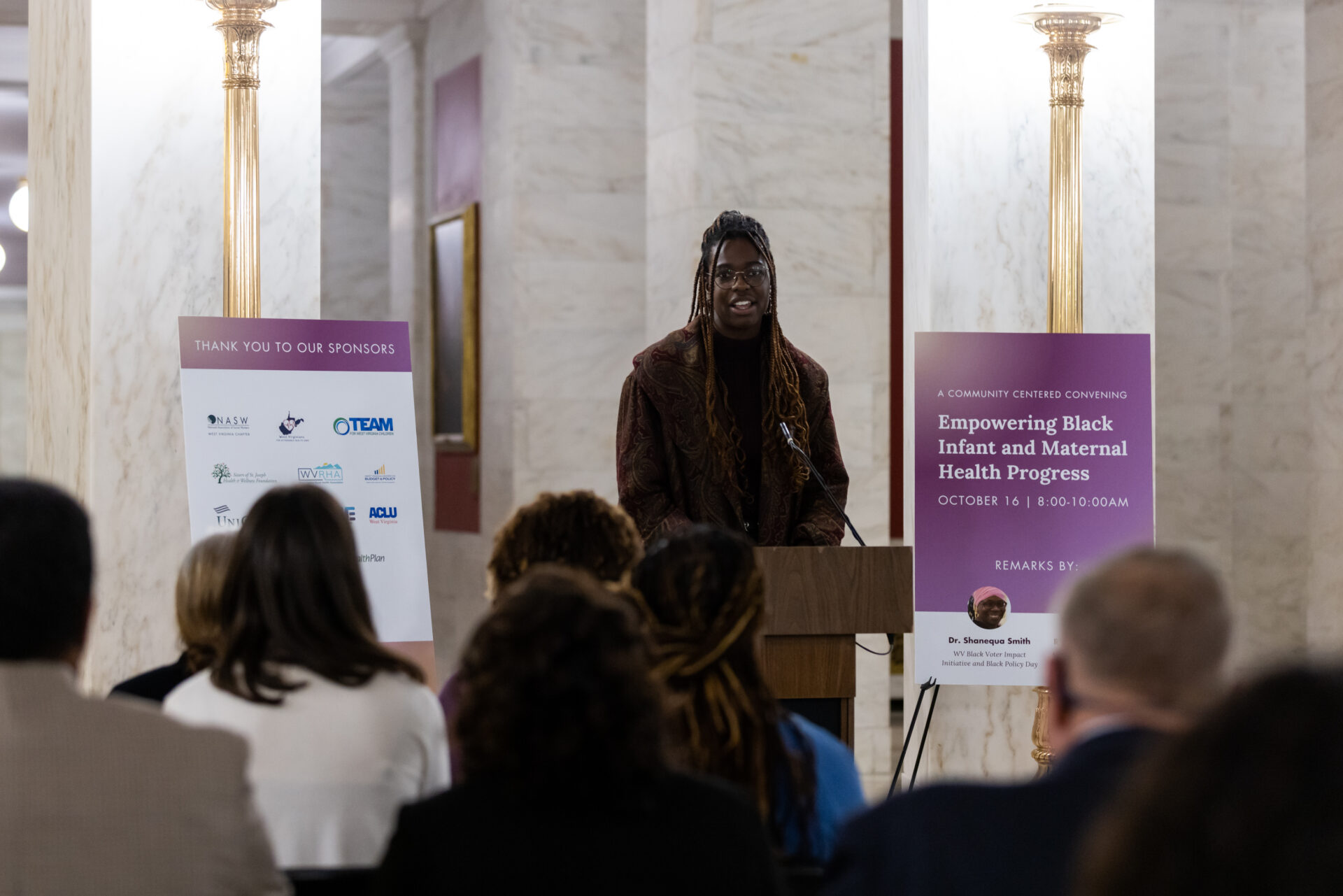The Black Infant and Maternal Health Working Group hosted a breakfast and meet and greet with lawmakers Monday at the capitol.
The event brought together advocates, affected community members, health professionals, and policymakers to address Black infant and maternal health outcomes in West Virginia.
Representatives from Black by God, the Black Voter Impact Initiative, the Morgantown/Kingwood NAACP, Morgantown NOW, the West Virginia Center on Budget and Policy and TEAM for WV Children participated in the breakfast.
Attendees heard from experts like Health and Safety Net Policy Analyst Rhonda Rogombe with the West Virginia Center on Budget and Policy.
“The most recent multi-year data showed that Black babies were twice as likely as their white counterparts to die in their first year of life in West Virginia, and that’s an unacceptable statistic,” Rogombe said.
According to the March of Dimes the number of preterm births between 2019 and 2021 in West Virginia was higher for Black infants, at 17.6 percent compared to 12.4 percent for white babies.
Preterm birth is a high indicator of risk, but West Virginia law currently does not allow the mortality review team to interview the family of an infant or mother who dies, which limits the scope of the information they collect, according to Rogombe.
“What really started the spark to the national conversation around this is that Black and indigenous women were facing mortality rates two to three times more than their white peers in that first year after giving birth,” Rogombe said. “That has only been exacerbated by the COVID-19 pandemic. And so, without that knowledge on the state level, we really don’t know what that looks like, but given the other health indicators that our Black population often faces, we can reasonably assume that the issue is worse for Black West Virginians as well.”
Rogombe said more data collection and the sharing of that data by race in a timely fashion would give a more complete picture of Black infant and maternal health outcomes in West Virginia.
“When controlling for variables like income, education, and other pieces, we still see Black women facing higher rates of mortality than their white peers,” Rogombe said. “All of those things mean that in West Virginia, we really, really need to address this issue and, and just ensure that moms and babies live.”
Attendees had the opportunity to share their stories with lawmakers directly at Monday’s breakfast. Some have lived experience of racial discrimination in maternal health, like Elizabeth Anne Greer Mobley.
“I have a master’s degree plus 42 credits. That still did not save me from suffering horrific miscarriages, from suffering from catastrophic and well catastrophic in the sense that I hemorrhaged, my children ended up in a PICU, NICU,” Mobley said. “It just does not protect you in the state of West Virginia from having horrific and challenging medical situations when there’s Black racism ingrained within the maternal and infant medical industry.”
Mobley moved from Maryland to Martinsburg with her family when she was 14. She calls herself a “Black-alachian.”
“I claim West Virginia, I have been here for 18 years, my babies, I’m giving birth in West Virginia, educated in West Virginia, I stayed in West Virginia, I have a 501(C)3, and an LLC,” Mobley said. “I’m proud to be here. I’ve stayed here, but you don’t want me. You don’t want my children’s or my life, the lives of me or my children are not worthy.”
In addition to being involved in her community in Martinsburg, Mobley is also a foster parent for the state. She said she attended the breakfast at the capitol so that no one else has to go through what she has gone through.
“I don’t know what it’s gonna take or what I’ve had to say or what all I have to give to make the story palpable enough for us to impact and affect will change,” Mobley said. “Because what I went through should never happen again, and yet it did.”
Rogombe said improvements could be made by prioritizing families in the upcoming 2024 legislative session.
“Creating pathways for midwives and doulas to be reimbursed by health insurance companies so that pregnant people have options in terms of what their care looks like,” Rogombe said. “Things like paid family and medical leave so that people can recover, you know, deepening our, the wealth of resources around mental health. There is a broad range of options and the more that we prioritize families, whatever that looks like, the better our outcomes will be.”
Appalachia Health News is a project of West Virginia Public Broadcasting with support from Charleston Area Medical Center and Marshall Health.
